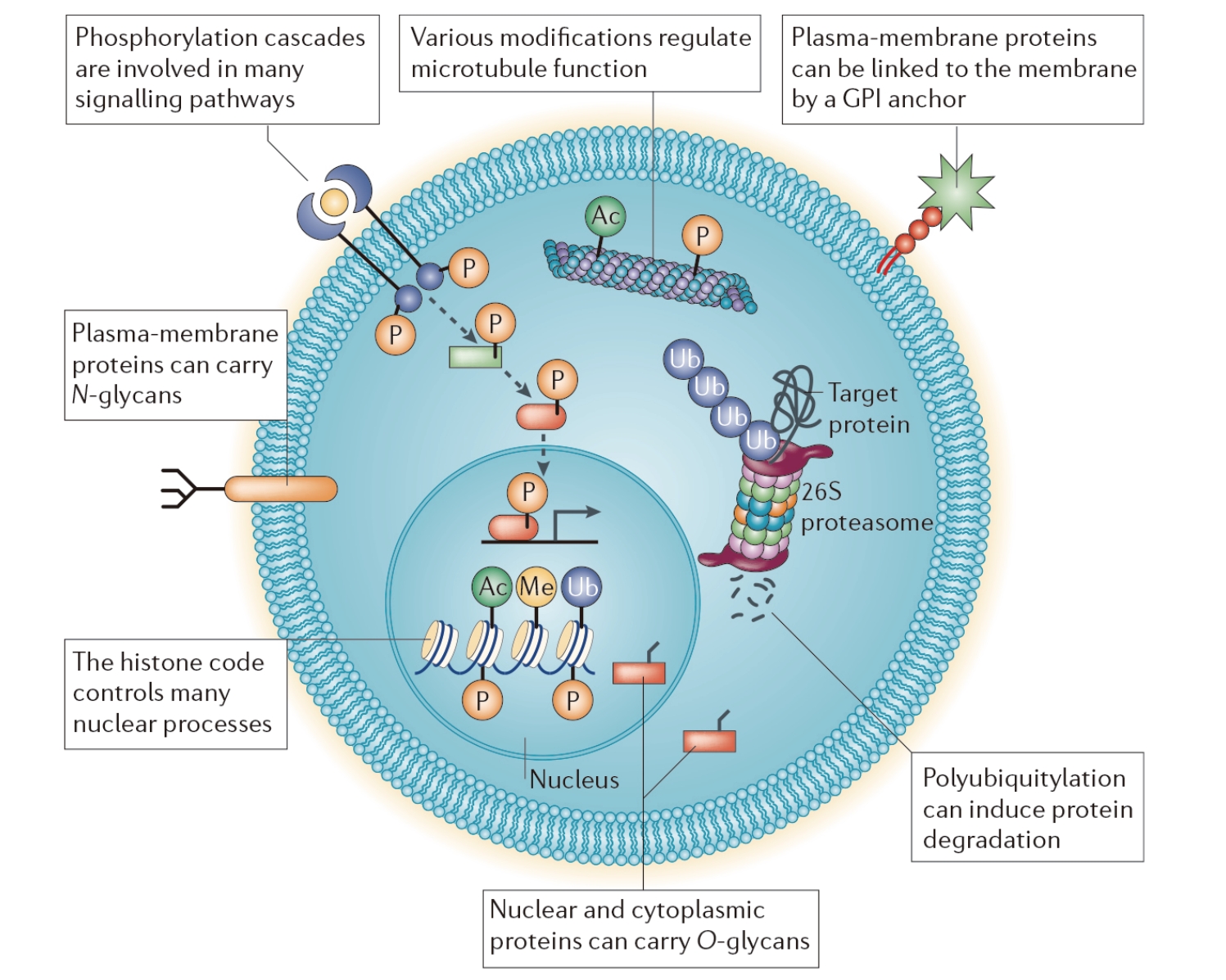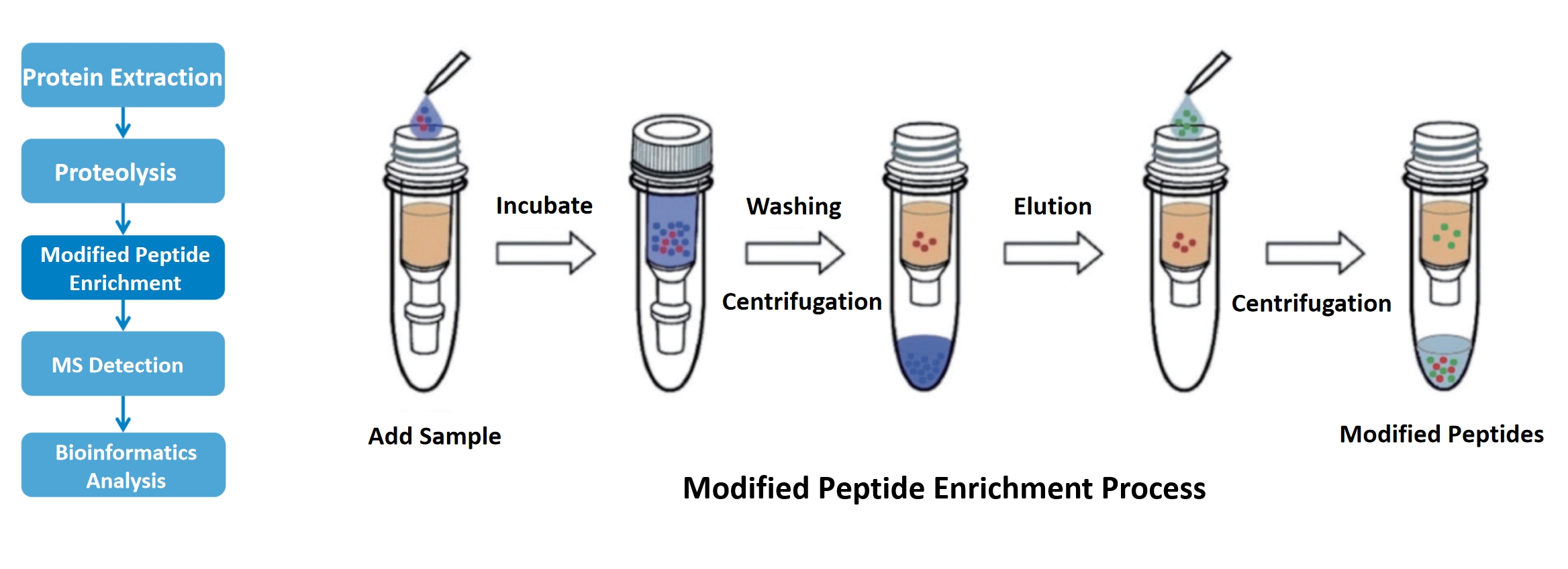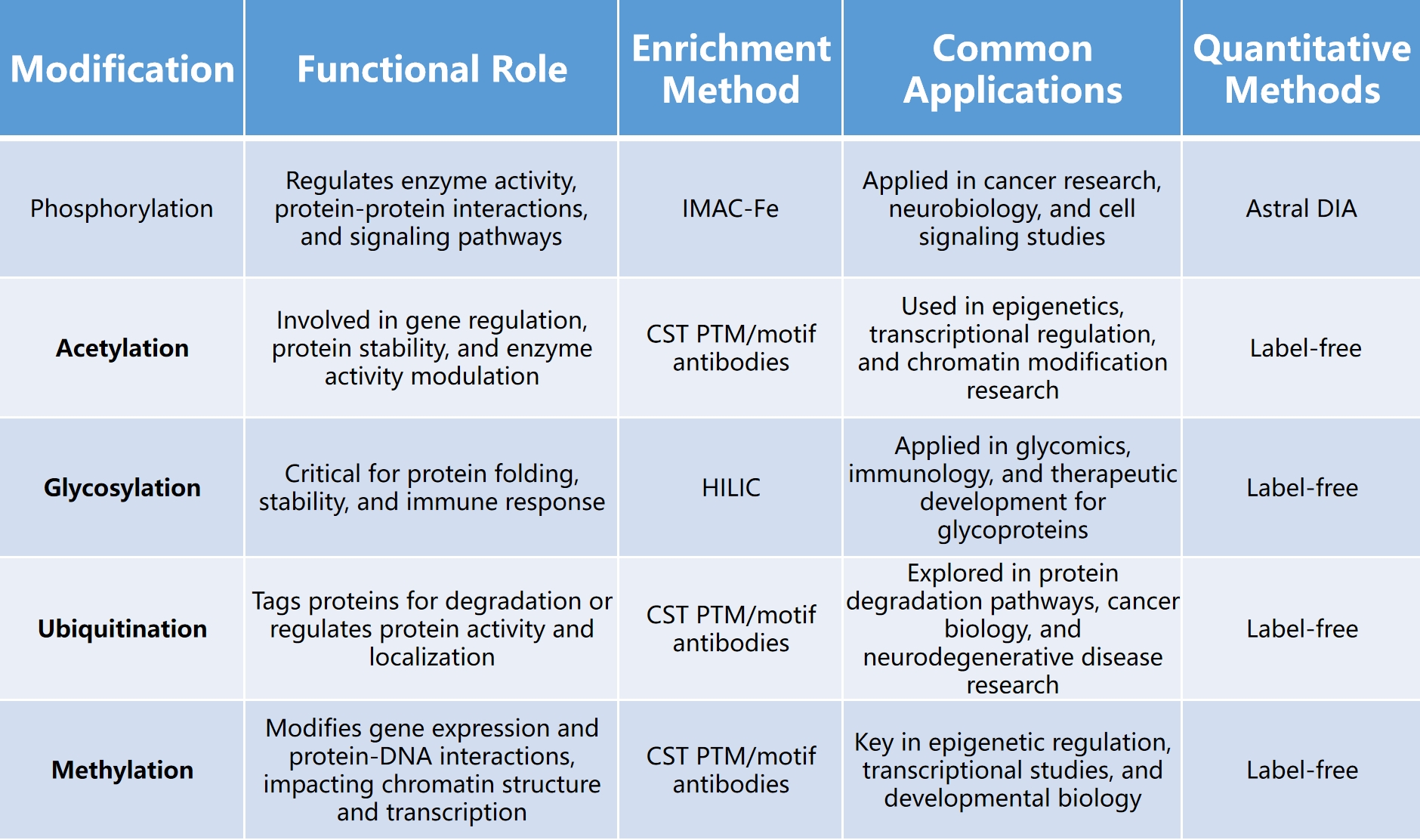MtoZ Biolabs: Advanced Post-Translational Modification (PTM) Proteomics Services
- Astral DIA (Data-Independent Acquisition): This method allows for comprehensive and unbiased quantification of peptides, delivering high sensitivity and reproducibility in PTM quantification.
- Label-free Quantification: A non-labeling approach that enables the quantification of PTMs across multiple samples without the need for chemical labeling, suitable for high-throughput studies.
- Cancer Research: Identifying aberrant phosphorylation and acetylation patterns in oncogenes and tumor suppressors.
- Neurobiology: Investigating protein modifications linked to neurodegenerative diseases, such as Alzheimer’s and Parkinson’s
- Immunology: Exploring glycosylation changes in immune responses and antibody production
- Epigenetics: Studying acetylation and methylation modifications that regulate gene expression and chromatin dynamics
- Drug Development: Screening and characterizing therapeutic targets by analyzing protein modifications in response to drug treatments.
Post-translational modifications (PTMs) are critical biological processes that occur after protein synthesis, altering protein functions through the addition or removal of specific chemical groups. PTMs can include phosphorylation, glycosylation, acetylation, methylation, ubiquitination, and many other modifications that regulate a wide range of cellular processes. These modifications are integral to cell development, signaling pathways, immune response, and more. Due to their complex and dynamic nature, the analysis of PTMs is essential for understanding protein function, disease mechanisms, and therapeutic development.

At MtoZ Biolabs, we offer comprehensive proteomic solutions designed to thoroughly analyze PTMs. Our state-of-the-art platform employs advanced mass spectrometry technologies coupled with highly specialized enrichment techniques, providing robust, sensitive, and precise PTM analysis. Our services cover the identification, quantification, and characterization of PTMs, offering valuable insights for academic and pharmaceutical research.
Technical Process for PTM Analysis
The process of PTM analysis involves multiple precise steps to ensure accurate detection and quantification of protein modifications:
1. Sample Preparation: Proteins are extracted and digested into peptides using enzymes like trypsin.
2. Enrichment: Specific modifications are isolated using affinity-based methods such as metal affinity chromatography for phosphorylated proteins or antibodies for other specific PTMs.
3. Purification: Peptides are further purified to remove unwanted materials.
4. Mass Spectrometry Analysis: The purified peptides are subjected to high-resolution mass spectrometry (MS) to detect and analyze the specific PTMs.
5. Bioinformatics Analysis: The mass spectrometry data is processed using advanced software tools to identify PTMs and quantify their abundance.

Modification Types and Functional Descriptions

Comprehensive Quantification Approaches
MtoZ Biolabs employs cutting-edge quantitative approaches to provide an accurate analysis of PTMs, including
Applications of PTM Proteomics
Our PTM analysis services have broad applications across numerous fields of biological and clinical research, including:
Why Choose MtoZ Biolabs for PTM Proteomics?
With a proven track record in proteomics, MtoZ Biolabs offers unmatched expertise in post-translational modification analysis. Our advanced technological platforms, combined with rigorous quality control and expert bioinformatics support, provide comprehensive, high-resolution data that can significantly enhance your research outcomes. Whether you're studying protein signaling pathways, exploring disease mechanisms, or developing novel therapeutics, MtoZ Biolabs is committed to delivering accurate, detailed, and actionable insights to drive your discoveries forward.
By choosing MtoZ Biolabs for your PTM proteomics needs, you gain access to unparalleled analytical capabilities, tailored solutions, and a team of experts ready to support your project from start to finish. Contact us today to learn how we can help accelerate your research in post-translational modifications!
How to order?







